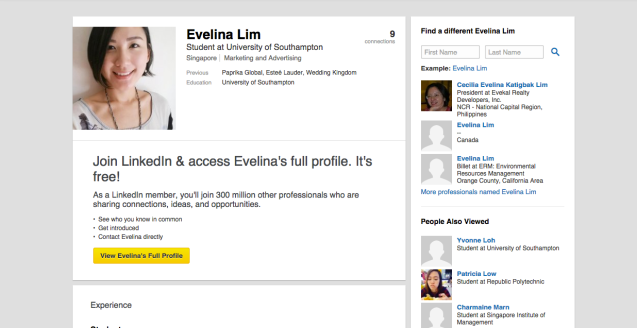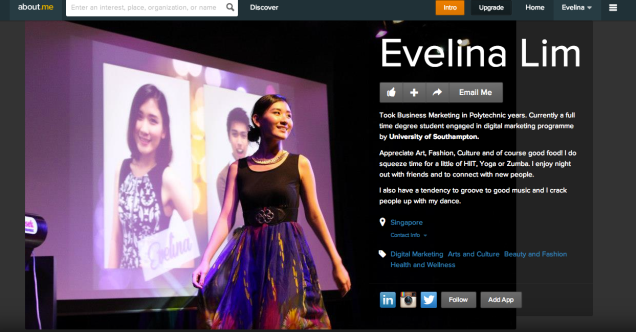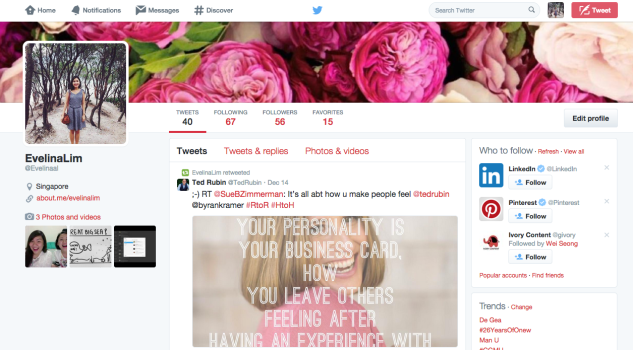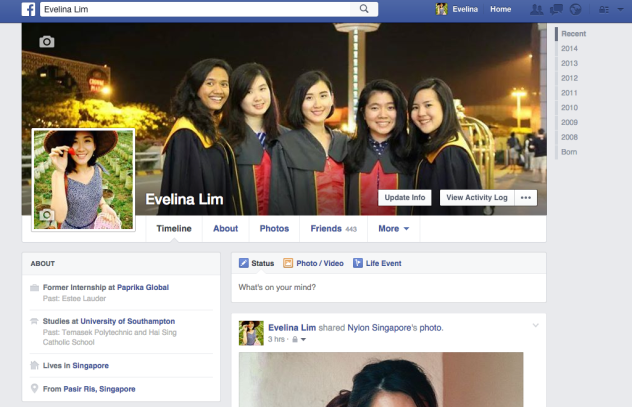*ClapClap* Amateur first try on editing a video all by myself. *ClapClap*
Links to my online profile:
(Click on picture to link to page :))
[LinkedIn]
[AboutMe]
Before this module, I do not have any professional online profile such as LinkedIn and AboutMe that is supposed to aid in my employability. However, midway through the module, I realised the value of it, therefore created both accounts and filled up my ‘online resume’ managing my online identity. I found out that these platforms not only allow easy searching for people who are interested in me, but also allow me to connect and engaged with them, and find new opportunities. Online profile equals to a passport and an identity.
[Twitter]
The use of Twitter and WordPress also showed me that the type of contents input matter a lot. Prior to the module, I have stopped using Twitter for quite some time. (Initially, I used it to connect with my friends which is more social and lifestyle based.) However, I decided to start afresh and created a new Twitter account and WordPress blog for posting of assignments. Of course the content are mostly marketing related, thus I got followers that are working in this field or like-minded people other than my classmates. Type of content brings type of followers!
[Facebook]
[Instagram]
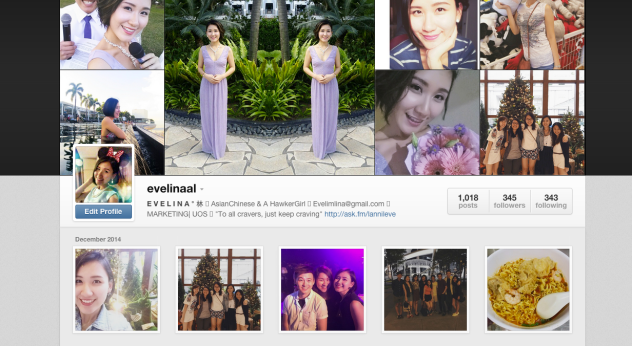
Facebook and Instagram is for personal use and I would like to make it stay that way. Other than my professional profiles, I would like to show other aspects of myself that tend towards my personality, lifestyle, interests and hobbies. One major takeaway from this module to keep my online identity as true as possible, believing in the true essence of authenticity. People should be able to see the all rounded me 🙂 Having said that, I will still be careful on the ethics of social media and what I post online. Being authentic online does not mean I can ignore social media ethics.
Well, if you make a Google search on me now, you will be able to find me but I am not exactly there yet. I am still clouded by other Evelina and one of them is a famous fashion blogger name Evelina Barry. Ahhh… Sucks to have a famous person having the same name as you yeah?Anyway, I will not let that affect me too much because I can make a difference in the near future.
I understand now that there is a lot of hard work behind the screen to be easily found by people on Google! Moving forward, I will continue to make good use of the various platforms as mentioned. Hopefully, I can find new platforms to utilise as well. I will think of ways to collaborate with others to make things come to life! Just like the video I have collaborated with Sara on Topic 5 Reflection. (Check out here if you have not 🙂 ) One more area I mentioned in my previous post that I will work on is to start learning how to video edit better. HOW HARD IS THAT! Hopefully, you will see my improvement as I go along!
Cheers!
